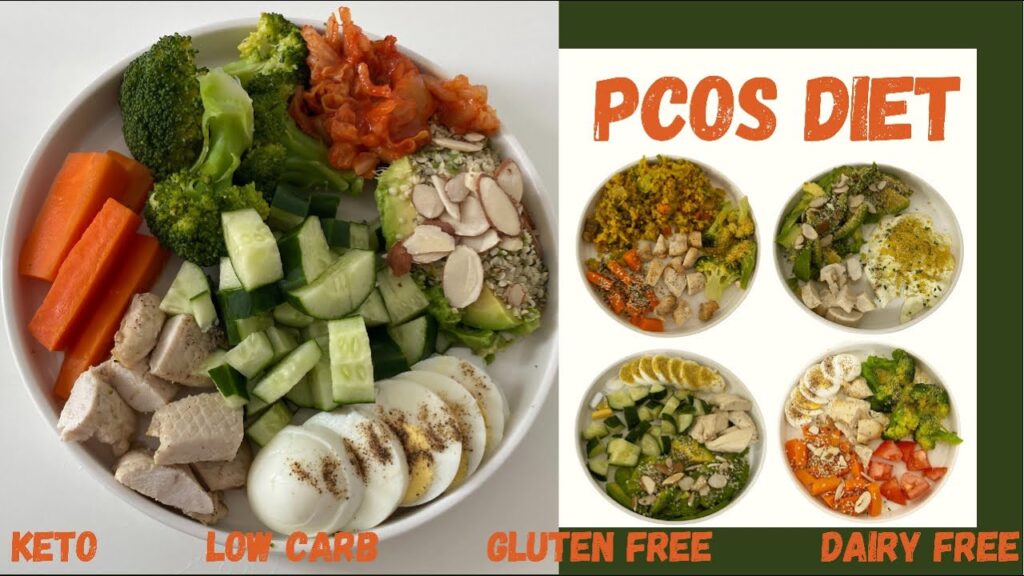Keto Diet PCOS Meal Plan: A Complete Guide to Eating for Hormonal Balance
Struggling with PCOS and wondering how your diet can help? The keto diet is gaining attention for managing PCOS symptoms. This article breaks down everything you need to know about creating a personalized, effective keto diet PCOS meal plan.
What is PCOS?
Polycystic Ovary Syndrome (PCOS) is a hormonal imbalance that affects women of reproductive age. Common symptoms include irregular periods, weight gain, acne, and insulin resistance. While medications can help, diet plays a major role in managing PCOS naturally.
Why Keto Works for PCOS
The Science Behind It
The keto diet is a high-fat, low-carb, moderate-protein eating plan that shifts your body from burning glucose to burning fat for energy. For women with PCOS, this can:
- Lower insulin levels
- Reduce inflammation
- Balance hormones
- Promote weight loss
Clinical Benefits
Studies have shown that women with PCOS who follow a ketogenic diet experience improvements in:
- Ovulation and fertility
- Blood sugar levels
- Androgen levels (which cause excess hair growth and acne).
How to Create a Keto Diet PCOS Meal Plan
Step 1: Understand Your Macros
Aim for a breakdown of roughly:
- 70% fats
- 20-25% protein
- 5-10% net carbs (usually 20-30g per day)
Step 2: Choose PCOS-Friendly Keto Foods
Healthy Fats
- Avocados
- Olive oil
- Coconut oil
- Grass-fed butter
Protein Sources
- Chicken
- Eggs
- Salmon
- Turkey
Low-Carb Vegetables
- Spinach
- Broccoli
- Zucchini
- Cauliflower
Foods to Avoid
- Sugar and sugary drinks
- Refined carbs (white bread, pasta)
- Highly processed snacks
Step 3: Hydrate and Support Detox
- Drink 2–3 liters of water daily
- Include herbal teas like spearmint (linked to lower testosterone)
- Consider magnesium and omega-3 supplements (talk to your doctor first)
7-Day Keto Diet PCOS Meal Plan
Day 1
- Breakfast: Scrambled eggs with spinach and avocado
- Lunch: Grilled chicken salad with olive oil and nuts
- Dinner: Baked salmon with roasted broccoli
- Snack: Celery with almond butter
Day 2
- Breakfast: Chia seed pudding with coconut milk
- Lunch: Zucchini noodles with ground turkey and marinara
- Dinner: Stuffed bell peppers with cheese
- Snack: Boiled eggs
Day 3
- Breakfast: Keto smoothie with spinach, avocado, and MCT oil
- Lunch: Cobb salad with turkey, egg, and avocado
- Dinner: Beef stir-fry with broccoli
- Snack: Cucumber slices with cream cheese
Day 4
- Breakfast: Omelet with mushrooms and cheddar
- Lunch: Lettuce wraps with tuna salad
- Dinner: Chicken thighs with cauliflower mash
- Snack: Olives and cheese
Day 5
- Breakfast: Greek yogurt (unsweetened) with chia seeds
- Lunch: Shrimp and avocado salad
- Dinner: Pork chops with sautéed spinach
- Snack: Handful of walnuts
Day 6
- Breakfast: Fried eggs with sautéed kale
- Lunch: Keto chicken soup
- Dinner: Lamb chops with roasted asparagus
- Snack: Almonds
Day 7
- Breakfast: Bacon and avocado
- Lunch: Grilled salmon with side salad
- Dinner: Zucchini lasagna
- Snack: Cheese sticks
Additional Tips for Success
Stay Consistent
Hormonal balance takes time. Stick with your keto PCOS meal plan for at least 6-8 weeks to notice significant changes.
Track Progress
Use a journal or app to log meals, symptoms, and cycle changes. This helps identify food triggers and wins.
Move Your Body
Regular exercise supports insulin sensitivity. Try low-impact workouts like walking, yoga, or strength training.
Frequently Asked Questions (FAQs)
Q: Is the keto diet safe for women with PCOS?
A: Yes, studies and testimonials support keto for PCOS, especially when monitored by a healthcare provider.
Q: Can keto help with fertility?
A: Keto may improve ovulation and hormonal balance, potentially enhancing fertility.
Q: What are signs that keto is working for PCOS?
A: Reduced cravings, more regular periods, weight loss, clearer skin, and better energy.
A well-structured keto diet PCOS meal plan can be a game-changer for managing symptoms naturally. By reducing carbs, increasing healthy fats, and choosing PCOS-friendly foods, you support your body’s hormonal balance. Start small, stay consistent, and always consult your doctor before making major dietary changes.

